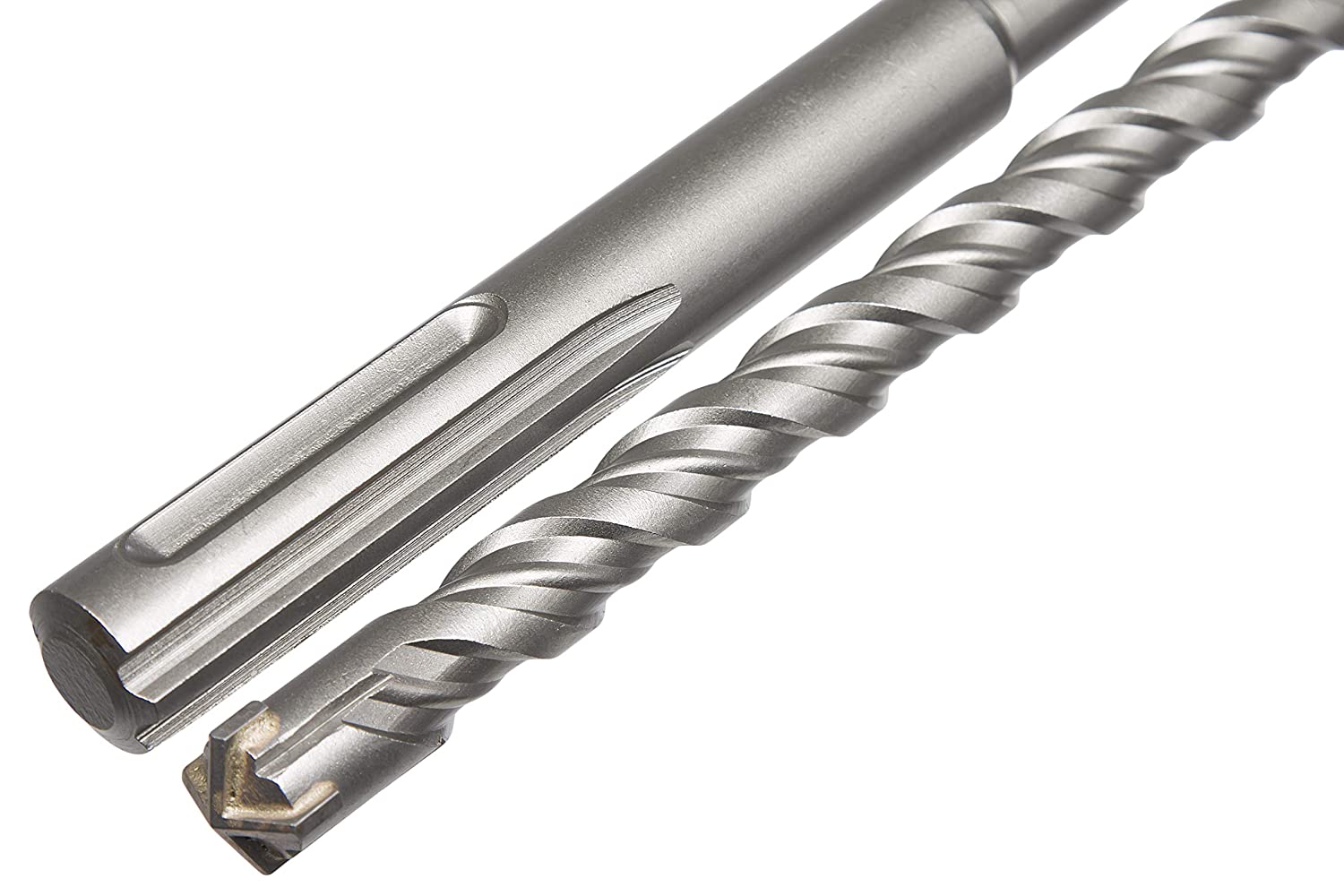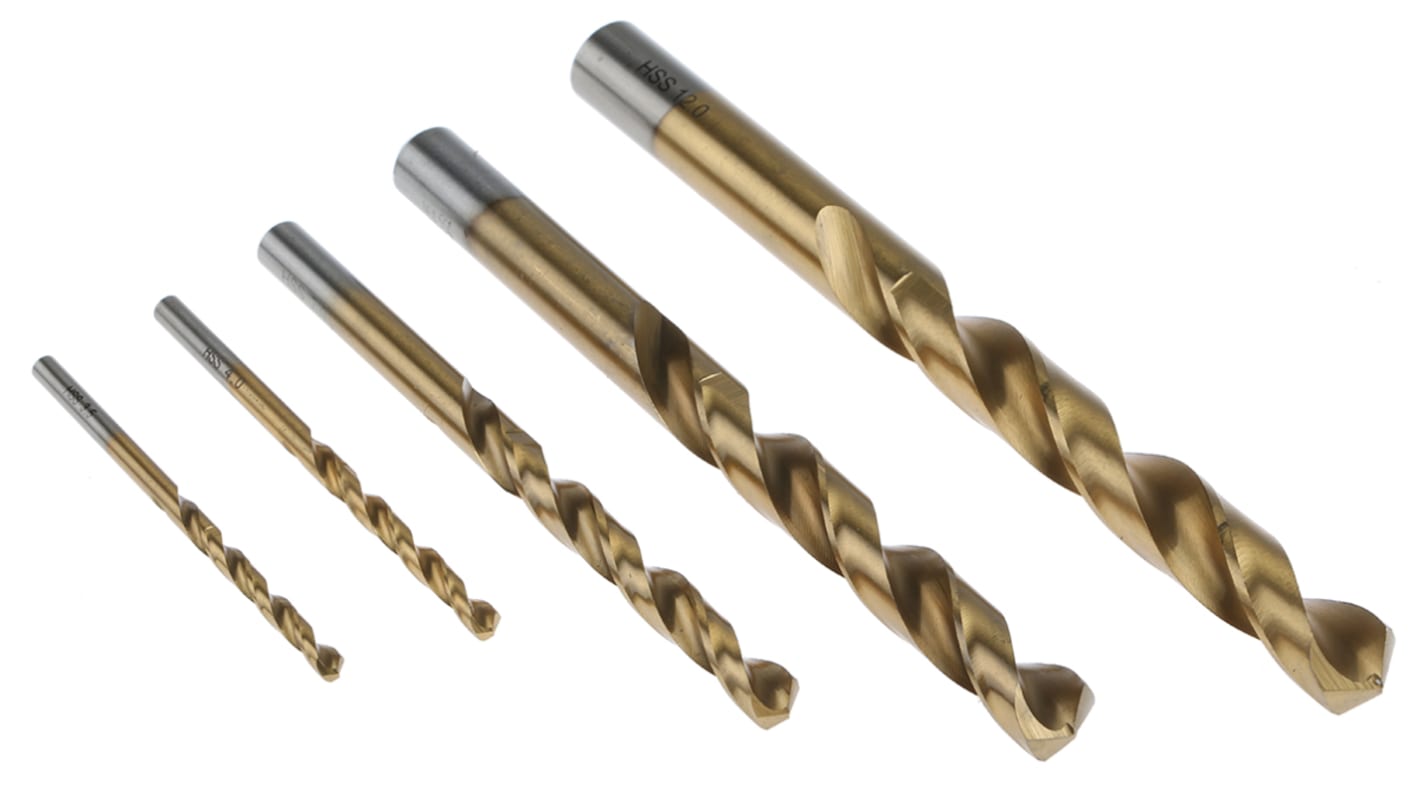How are Rotary hammers different from Percussion Drills? The Rotary Hammer is the right choice for you.
Before we begin: you must be able to tell the 2 tools apart.

This is a percussion drill, it is more universal use and often has a chuck of up to 13mm, it also has more versatility when it comes to screwing fixtures and accessories as you can insert a twist drill bit or a drill bit depending on your application.
This drill can work on metal, wood and concrete. The following is an example of a metal drill.

This is a Rotary Hammer, it is more powerful and thus has a handle for secure use. Most Rotary Hammers come with a D shape handle design for better ergonomics and shock absorption areas for more comfortable drilling.
This is used for regular work in concrete, or if you are drilling concrete to a depth of more than 100mm. They work with bits with bases that look like this. The groove slots allow the ball bearings of rotary hammers to give more impact into concrete.

Key Differences
1) Impact Mechanism

The primary difference between rotary hammers and percussion drills lies in their impact mechanism.

-
Percussion drills use a hammering action, relying on the downward force from the drill's motor to create the impact. This means you press the back of the drill to let it knock the drill bit as you drill into the wall.

-
On the other hand, rotary hammers employ a piston-driven mechanism that generates both a rotational and hammering motion, delivering a more potent and consistent force. This dual-action impact significantly improves the tool's efficiency in penetrating concrete.
The way rotary hammers penetrate a tough material works by first knocking the bit in using the piston mechanism, before twisting to penetrate. Percussion drills work the opposite way and require a force to push the tool into the concrete.
When using a rotary hammer to drill concrete, do not press down on the tool and let the piston do the work. This allows less stress on the mechanism. Because of their piston function, you need to use SDS-Plus or SDS-Max bits with rotary hammers.
If you are a home user or only occasionally working on concrete: we recommend using the percussion drill
2) Drilling Speed and Power
Due to their unique impact mechanism, rotary hammers can drill into concrete at a much higher speed compared to percussion drills. The piston-driven motion enables faster drilling with less effort, reducing the time and physical strain required to complete concrete tasks. Additionally, rotary hammers possess greater power, allowing them to tackle tougher concrete surfaces effortlessly.
| Tool | Rough maximum size in concrete |
| 12V Percussion Drill | 8mm |
| 18V Percussion Drill | 13mm |
| 12V Rotary Hammer | 16mm |
| 18V Rotary Hammer | 26mm, 32mm (depending on the model) |
These numbers are for reference only. Of course the 18V tools will be more powerful than their 12V counterparts. Rotary hammers will always work on concrete faster because of the mechanism described above.
3) Versatility
More Versatile
Percussion drills can perform reasonably well on softer materials like wood or plastic, they struggle to maintain their effectiveness on dense materials like concrete. You can also use them to fasten screws and furniture fittings
More powerful in concrete:
Rotary hammers, on the other hand, are highly versatile and can tackle a wide range of materials, including brick and making them an ideal all-in-one solution for construction and renovation projects.
4) Reduced Vibration
Working with concrete for extended periods can lead to fatigue and discomfort, mainly due to the high levels of vibration generated by the tool. Rotary hammers are designed with advanced anti-vibration technology, significantly reducing the impact felt by the user. This feature not only enhances comfort but also improves drilling accuracy, reducing the risk of errors.
5) Chiseling Capability

In addition to drilling, rotary hammers often come with a chiseling function, which is highly beneficial for concrete work. This feature allows users to chip away at concrete surfaces, making it ideal for tasks such as removing tile, breaking up concrete for repairs, or creating channels for wiring and plumbing installations. Percussion drills lack this essential feature, limiting their utility for concrete-specific tasks.
6) Durability and Longevity
Concrete work can be tough on tools, and it is essential to invest in equipment that can withstand such demanding conditions. Rotary hammers are built with sturdier components and better heat dissipation mechanisms, ensuring prolonged durability and extended tool life compared to percussion drills.
If you are in need to hack tiles, drill holes in concrete, or do concrete work for cabling - Milwaukee has a wide range of tools for your application. You may search for rotary hammers on our shop or contact us if you need more clarification.




